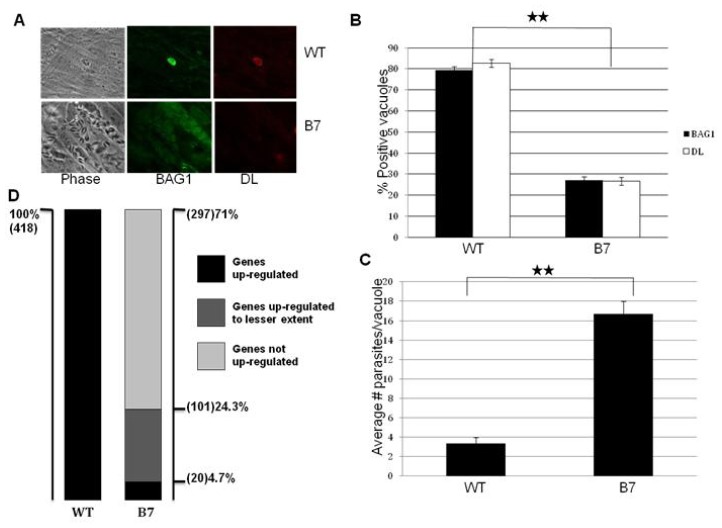Figure 1.
Cellular differentiation is impaired in mutant B7. Confluent HFF cells were infected with the wild-type and mutant parasite lines and subjected to bradyzoite differentiation conditions for 72 h as described in materials and methods. (A) Immunofluorescence assay carried out with wild-type (WT) and mutant (B7) parasites after 72 h of bradyzoite growth conditions. Green: bradyzoite antigen 1 (BAG1) [16]. Red: Dolichos lectin (DL) [3]; (B) The presence/absence of marker expression (BAG1 and DL) was counted for 100 parasite vacuoles, in three independent experiments; (C) Proliferation was determined by counting the number of parasites per vacuole (in 100 vacuoles), in three independent experiments; (D) Microarray analysis reveals a global defect in the expression of bradyzoite specific genes. The expression of all the genes up-regulated more than two fold in wild-type parasites (total of 418 genes) was analyzed in the mutant B7. Out of these 418 genes, 297 genes are not up-regulated in the mutant parasites; 101 genes are up-regulated but to a lesser extent compared to the expression in wild-type parasites; and 20 genes are up-regulated to the same levels than wild-type parasites. The significance of the data was determined by Student’s t-test (* p < 0.05, ** p < 0.01 and *** p < 0.001). The data are represented as mean ± SEM.

